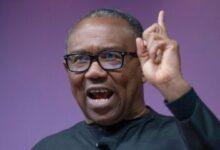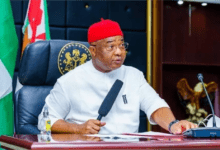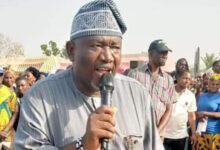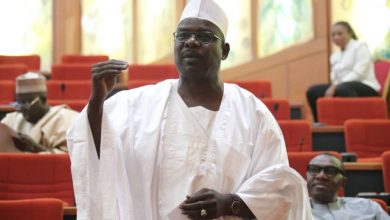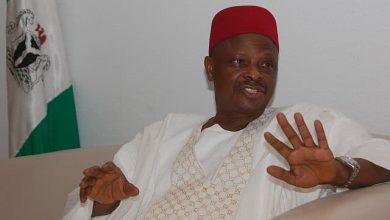
The Importance Of Democracy In Nigeria
The Importance Of Democracy In Nigeria – Democracy is an important form of government in Nigeria, as it allows for the participation of Nigerians in the decision-making process. This can help ensure that the government is accountable to the people and responsive to their needs and concerns. In a democracy, power is vested in the people, who elect representatives to serve their interests.InformationGuideNigeria
This can help foster a sense of political engagement and ownership among people, and can ultimately lead to more stable and prosperous societies.
👉 Relocate to Canada Today!
Live, Study and Work in Canada. No Payment is Required! Hurry Now click here to Apply >> Immigrate to CanadaRead Also: The Role Of Mass Media In Nigeria
Nigeria operates as a representative democracy, in which citizens elect members of the National Assembly, who then make decisions on behalf of the people.20 Hp Laptops and their Prices in Nigeria
At the state level, citizens elect members of state assemblies, who can pass laws and represent the interests of their constituents. Additionally, Nigeria has a president, who is elected by the people and serves as the head of state and government.
Read Also: The Role of Local Government Education Authority In Nigeria
What is Democracy?
Democracy is a form of government in which power is held by the people, either directly or through elected representatives. In a democratic system, the people have the right to participate in the political process, either through voting in elections or through other means of civic engagement. This allows for the expression of the will of the people and can help ensure that the government is accountable to the people it serves.
Democracy allows people to exercise control over their government, limit the power of the heads of state, protect civil liberties, and provide for the separation between powers. There are many types of democracy. You can find variants like participatory, liberal, and pluralist democracies, in addition to the two most commonly used types of democracy–direct and representative.
Several forms of democracy and they are
- Representative Democracy
- Direct Democracy200 Romantic Love Message
- Participatory Democracy
- Deliberative Democracy
Read Also: The Role Of Judiciary In The Implementation Of Law In Nigeria
👉 Relocate to Canada Today!
Live, Study and Work in Canada. No Payment is Required! Hurry Now click here to Apply >> Immigrate to CanadaFactors Affecting Democracy in Nigeria
Several factors can affect the functioning and stability of democracy in Nigeria. Some of these include:
- Political Instability: Nigeria has a history of political instability due to military coups and authoritarian rule, which can weaken the stability and legitimacy of its democratic institutions.105 Good Morning Love Messages
- Corruption: In Nigeria, corruption is a widespread issue that undermines trust in democratic systems and processes. It is a major problem that must be addressed to strengthen the country’s democracy.
- Ethnic and Religious Divisions: Nigeria is a country with a rich cultural and religious diversity, but these differences can sometimes cause conflict and disrupt the unity and stability of the nation.
- Weak Institutions: Nigeria’s democratic institutions, such as the judiciary and electoral commission, are not always strong and independent, which can undermine the fairness and transparency of democratic processes.
- Economic Challenges: Nigeria faces significant economic challenges, including poverty, unemployment, and lack of infrastructure, which can impact the ability of the government to effectively serve the needs of the people and maintain popular support.
Read Also: The Role Of The Code Of Conduct Tribunal In Nigeria
Democracy and the Nigeria Society
Nigeria has a long history of democratic governance, dating back to the colonial period. During this time, the British introduced a system of elected councils, which allowed for some degree of political participation by the Nigerian people. After gaining independence in 1960, Nigeria adopted a federal system of government, with power shared between the national government and the various states.The Importance Of Democracy In Nigeria
Throughout the 1960s and 70s, Nigeria experienced several military coups, which led to periods of authoritarian rule.6 Best Airtel 4g Mifi and their Prices in Nigeria
In 1999, however, Nigeria returned to civilian rule, and since then has held regular elections at both the national and state levels. Despite some challenges and setbacks, Nigeria has remained committed to the principles of democracy and continues to work towards strengthening its democratic institutions.
Top 10 Importance of Democracy in Nigeria
- Democracy Promotes Accountability and Transparency in Governance:In a democratic system, such as practiced in Nigeria, elected officials are accountable to the people they serve and must answer to them at regular intervals through elections. This promotes transparency in decision-making and ensures that the government is accountable to the people.JAMB Portal
- Democracy Protects Individual Rights and Freedoms: Through Nigeria’s democratic system, individuals are protected by laws that safeguard their rights and freedoms. These include the right to free speech, freedom of religion, and the right to a fair trial.
- Democracy Allows for Peaceful Transitions of Power: With the help of democracy in Nigeria, power is transferred peacefully through regular elections. This helps to prevent conflict and instability in the country.
- Democracy Promotes Economic Development: Studies have shown that democratic countries tend to have higher levels of economic growth and development compared to non-democratic countries. This is because democracy in Nigeria allows for the free flow of ideas, encourages innovation and entrepreneurship, and allows for the resolution of economic disputes through legal means rather than violence.
- Democracy Ensures Representation of Diverse Groups: Due to democracy, all citizens have the right to vote and participate in the political process. This ensures that the voices and concerns of diverse groups within the society are heard and considered in decision-making.
- Democracy Allows for the Resolution of Conflicts through Peaceful Means: Democracy in Nigeria helps conflicts and disputes to be resolved through peaceful means such as elections, referendums, and the rule of law. This helps to prevent violence and instability in the country.
- Democracy Encourages Active Citizen Participation: The democratic system in Nigeria encourages citizens to participate in the political process and hold their elected officials accountable. This helps to ensure that the government is responsive to the needs and concerns of the people.NYSC Portal
- Democracy Promotes Social and Political Stability: Nigeria’s democratic system provides a stable framework for the peaceful resolution of conflicts and the protection of individual rights. This helps to prevent social unrest and promotes stability in the country.
- Democracy Allows for the Expression of Diverse Viewpoints: Democracy in Nigeria allows people to freely and openly express their views and opinions without fear of persecution. This promotes the exchange of ideas and encourages the development of a vibrant and diverse society.
- Democracy Promotes Good Governance: Nigeria’s democracy makes elected officials to be accountable to the people they serve and must act in the best interests of the society. This helps to ensure that the government is effective and efficient in its policies and actions.
Read Also: The Roles of the Youths in Nigeria Politics
Conclusion
Democracy is an important form of government in Nigeria. It ensures that the voices of the people are heard and represented in the decision-making processes of the country, and helps to prevent the abuse of power. The democratic system in Nigeria is a combination of different forms of democracy, which work together to ensure that the rights of individuals and minority groups are protected. Despite challenges, Nigeria has made significant progress in establishing a more representative and accountable form of government.
Check JAMB Result
Check and Confirm: How much is Dollar to Naira
